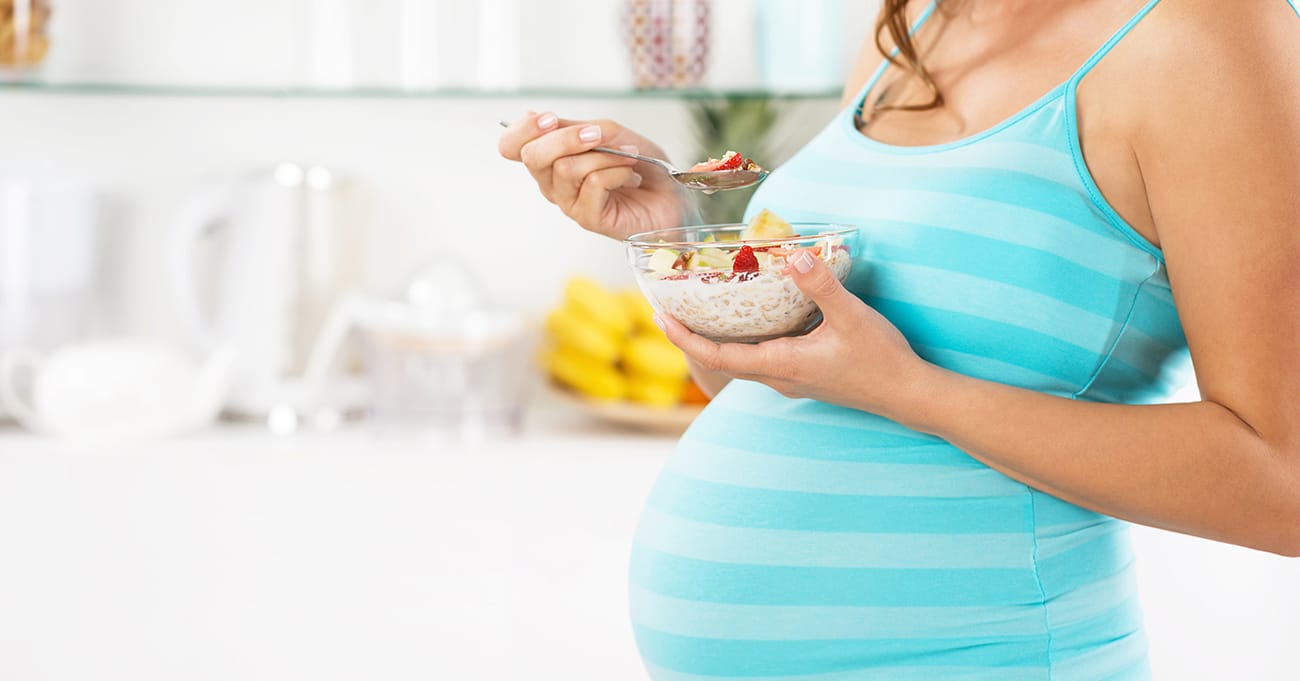It is widely believed that what a woman eats during pregnancy has a significant impact on the taste preferences of her unborn child. We decided to check whether this belief is supported by scientific data.
Question, does he program with his own? food pregnant woman, food preferences of the unborn child, judging by thematic forums, worries many women. IN Media regularly appear publications about communication products in the mother's diet and the tastes of the unborn baby. The fact that a child’s food preferences are largely shaped by his mother is also reports official portal about a healthy lifestyle under the Ministry of Health of the Russian Federation.
To begin with, let us agree that the text will use official terminology: an embryo or fetus will be called an organism until the ninth week of intrauterine development, a fetus - from the ninth week until the moment of birth, from the moment of birth - a child or baby.
The first sensations that are formed in the embryo are tactile. “What to Expect” resource from the author of the international bestseller “What to Expect When You’re Expecting” and science popularizer Heidi Murkoff reportsthat already at the age of eight weeks, the fetus develops sensory receptors on the face, mainly in the area of the lips and nose. Next - at approximately 18 weeks of age - appears hearing: the fetus hears both internal sounds (the mother’s heartbeat, the sound of her peristalsis) and external ones. Taste buds, like sensory buds, are being formed in the embryonic period: by the eighth week of pregnancy they are already connected with brain neurons responsible for transmitting taste sensations. However, the embryo cannot yet sense tastes, since their recognition requires taste buds, which develop only at the 15th week. After this, the fetus will get the first taste of its life by swallowing the brackish amniotic fluid (amniotic fluid). Depending on the duration of pregnancy, the fetus swallows from 200 to 500 ml per day, and in the last weeks of gestation the volume of ingested liquid can reach a liter. Despite the fact that the mother's digestive system is separate from the fetus's digestive system, certain components of the food consumed by the woman enter the amniotic fluid. However, the impressions of food received by the unborn child in the womb are significantly different from those to which we are accustomed, since an important component of any dish is missing - its aroma transmitted through the air.
Results of one of the first research on the connection between nutrition during pregnancy and the taste preferences of newborns, conducted by American scientists from a non-profit independent scientific institute - the Monell Chemical Senses Center in Philadelphia, were published in the journal Pediatrics in 2001. They invited 46 women in the third trimester of pregnancy into the project who planned to breastfeed their baby after giving birth, and randomly divided them into three groups. Those in the first group drank 300 ml of carrot juice four times a week for three weeks in a row and did not drink it (and also avoided carrots) during lactation. Those in the second group were asked to abstain from drinking carrot juice and carrots during pregnancy, but were offered 300 ml of carrot juice per day for two months of lactation. The third group of women did not drink carrot juice and abstained from carrots both in the last trimester and during lactation. The article with the results does not contain information about how the female volunteers ate before participating in the experiment.
Babies' taste preferences began to be tested after they were 5 and a half months old. None of them had ever been fed carrot juice or any food containing carrots before. The experimenters offered the children cereal flakes diluted with either water or carrot juice. Conclusions about how much children like this or that product were made on the basis of external observations during feeding (whether the child turns away or not, whether he spits out food, or screams). Most babies whose mothers drank carrot juice while pregnant, as well as babies whose mothers drank carrot juice during lactation, liked cereal with carrot juice, but the group of babies whose mothers completely abstained from carrot juice showed predominantly negative reactions.
Based on the data obtained, the scientists concluded that the infants recognized the familiar taste and therefore demonstrated such loyalty to it. Experts believe that this method can facilitate the introduction of complementary foods and the further transition to solid foods, but they have not studied how these children will perceive carrots in subsequent years. In a 2016 article, scientists from the same Monell Chemical Senses Center notedthat a pregnant woman’s diet rich in fruits and vegetables programs the unborn child to also give preference to this style of eating. Experts see an evolutionary component in this - the fetus “remembers” the most common and guaranteed safe products even before birth. At the same time, Julie Mennella, one of the authors of both studies, notesthat "many babies will still make a sour face at the sight of broccoli - no matter how much the mother ate this product during pregnancy."
Systematic review of studies published in 2019 showedthat in utero the fetus can “remember” not only the taste of vegetables and fruits. Spices such as garlic or anise are also recognized by the baby after birth. Also, in retrospective studies included in the review, it was shown that children whose mothers drank alcohol during pregnancy remember and recognize its smell well after birth. However, neither in this review nor in any other scientific works in the databases of scientific publications PubMed and Google Scholar was it possible to find research on whether it is possible to cultivate in utero a love for such food groups as meat and meat products, fish and seafood, cereals and grains, eggs, milk and dairy products, bread and pasta, nuts and mushrooms.
Some researchers tried find correlation between how healthy the mother's diet was during pregnancy and how healthy the baby's eating habits will be. Scientists observed women and their children for different periods of time: from nine months to four years. Children whose mothers preferred a healthier diet (fruits and vegetables, fish, dairy, more variety) during pregnancy also preferred this eating style over sweetened drinks and confectionery. However, it is extremely difficult to transfer the obtained data to the child’s eating style throughout his life, since the observations were carried out for a limited period of life. For example, having become pregnant, a woman could give up unhealthy foods and fast food, carry the child, “accustoming” him to a fairly healthy diet, and after giving birth, after some time she returned to an unhealthy diet, showed it to her growing child and “retrained” him.
However, one pattern Yes: Children whose mothers consumed a lot of processed foods, sweetened drinks, processed foods and refined carbohydrates during pregnancy were more likely to gain excess weight during adolescence than their peers. Moreover, experiment on animals showed that eating “junk” food during pregnancy (foods high in fat and/or sugar, but low in dietary fiber, protein, vitamins, and minerals) changed the reward system in the brain of the offspring. Pregnant rats were fed unhealthy human foods: nut butters, peanut butter, candy bars, chips, sweetened cereals and fatty fast foods. The reward system of the offspring of these animals was less sensitive to junk food, requiring more sugar and fat to get the same level of dopamine that the offspring of rats whose mothers ate a normal rat diet received from junk food.
Thus, some programming of the taste preferences of the unborn child is indeed possible even during the period of intrauterine development. However, it is important to consider that all studies known to date, both in humans and in animals, assumed regular consumption of certain foods, and not occasional consumption. That is, neither a box of donuts nor a whole container of ice cream, eaten once during pregnancy, will program the child for an exclusively unhealthy diet. Likewise, a single consumption of broccoli or carrots will not turn a child into a fan of healthy food. Moreover, research has focused on infants' preferences and Toddlers, and by adolescence, tastes can change significantly. It is important throughout your pregnancy, and better yet throughout your life, to adhere to the principles of proper nutrition without overindulging. processed meat, fast food and sweetened drinks.
Cover image: Intermountain Healthcare

Mostly true
Read on the topic:
- Is it true that cognitive abilities decline during pregnancy?
- Is it true that listening to classical music by a pregnant woman has a positive effect on the fetus?
- Is it true that Soviet athletes were forced to get pregnant in order to get into peak shape for competitions?
- Is it true that frogs have been successfully used to determine pregnancy?
If you find a spelling or grammatical error, please let us know by highlighting the error text and clicking Ctrl+Enter.






